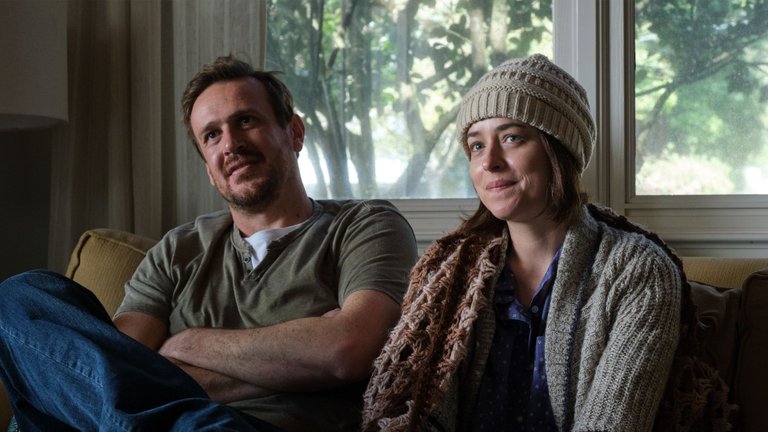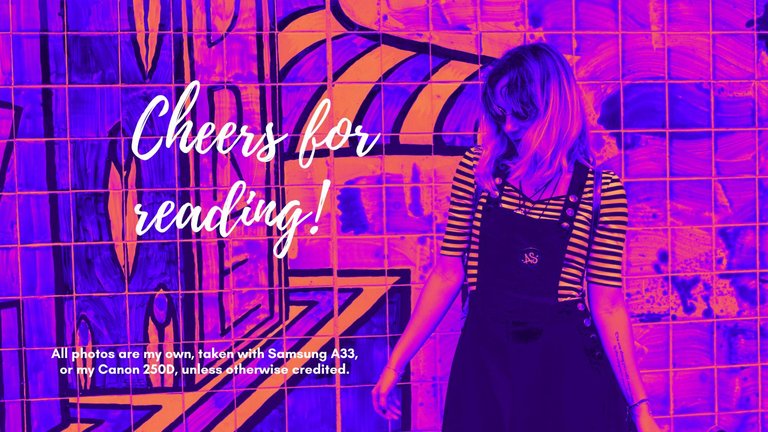Our Friend (2019) - Meaning in Selflessness
I fell in love with this movie as soon as I read the synopsis. It's called Our Friend and it's about this trio of friends, a married couple and their best friend, Dane, who drops everything in life when the she in the couple, Nicole, gets cancer. And goes to live with them and help them.
As you'd expect, it's a heartwarming film ostensibly about sacrifices, though it does have one or two very rupturing moments. I won't tell you what they are, 'cause maybe you wanna see it, and they're not relevant to the point. It's a great movie, in as far as reviews go, in as far as you should care what I think.

Photo: Gravitas Ventures
I took it as one in a footpath of little tiny steps modern art is making towards normalizing and de-tabooing death. We don't like death. We don't talk about death. We treat it as sad and horrible. It is. But it's also normal. Somehow, this movie manages to turn a real tragedy, a mother in her mid-thirties dying of cancer into something still horrible and heartbreaking, but also normal. It's a very kind and compassionate version of shit happens, with the underlying message that we can survive this.
Not death, literally. But being near death, which is something that causes us a great deal of suffering and anxiety. Our proximity to things and people dying. All the time. There's a beautiful scene in the film where Nicole asks her husband if she's ugly 'cause for a while now, nobody looks at her or meets her eye when they talk. They don't want to see the dying. We're so terribly afraid it's catching, we tend to separate ourselves from anyone who is sick or on the other end of it, who's grieving. Grief, also, is treated like a transmittable disease.
So we need art that shows us death is still terrible, still heartbreaking, still awful, but nevertheless there to stay. And maybe we'd have an easier time of it if we embraced its inevitability. I'm aware this sounds rather nihilistic. It's not.
What I took away from the film was that you can share the same house with death, with someone dying, old or sick, and that's also a part of it. It's the un-beautified, un-edited part of life that you wish to trade away, and failing that, that we seek to hide. The further we sweep things under the rug, the more horrible and scary they grow. Death is already unknown, and so scary by default without us ostracizing or shying away from talking about it. We need to talk about it.
It's based on a real story, the movie, and more specifically on an essay Nicole's husband wrote about her death and about their friend who came to help them and stayed even when other people's sympathy was wearing thin.
I read afterwards that critics hated the movie, arguing it scrubbed away the grittier parts of the man's essay. I didn't read the essay, but I understand those had to do with the grim, often unpleasant physical realities of dying like cleaning wounds and such. The author himself, receiving such critque, was understandably upset.
Why should it be ugly? It's not like there's a lack of that in our society. We think death is pretty ugly and grim already without the cinema showing us just how gritty. I don't think that's the point at all, nor are we there as a society. If they made it a very realistic incursion in caring after someone who's dying, people would walk away from the film saying "oh yeah that Dane guy was a hero for helping them, it's something Jesus might do". But not me.
As it is, the film leaves you thinking maybe that could be me. Maybe I could step outside my own comfort and my own grief and rage and personal terror of death to ease another human being's passing. We need more people thinking like that, and fewer delegating to Jesus, martyrs, saints and other bloody do-gooders.
Which brings me to my real favorite part of the film. Dane's story. Because while the stronger focus is obviously on the great sacrifice he makes to help them so selflessly, the underlying theme is Dane's own salvation. It's a man at a crossroads, feeling lost, who finds purpose and meaning in his life in helping another human being, in shouldering someone else's load for a while.
That's another thing that our modern hedonistic, self-obsessed society is trying to scrub away. That you can find the meaning you are so desperate for really in helping another, in giving your love not selfishly to receive, but because someone else needs it. In taking on the awful, heartbreaking task that no one else will.
There is meaning in helping.
and that's a pretty damn cool message for art to send.

I got tingles just reading about it!
Wow. I’m sold, this sounds like a beautifully wonderfully human story.
Hope you like it! I love Jason Segel's (or however you write his name) energy whenever I see him on screen, so that helped. Really good movie :)
That’s an endorsement I can get behind! …and I couldn’t tell you on the name 🤣
It is true that we often avoid talking about it, but films like this one remind us that it is an inevitable part of life. It seems to me that the message of finding meaning in helping others is something we all need to hear. I'll definitely give it a chance. thanks for sharing your perspective!
I have wanted to see this movie for a long time when I discovered it on a website, I was struck by the fact that the friend starred Casey Affleck who despite having some contempt from the movie audience for personal issues stands out very well in drama genre films as he did in Manchester by the sea, I feel that in this story he is also part of a great reflection that this film wants to leave us and for that reason I would like to see it soon. Thanks for sharing your honest review, a hug 🤗